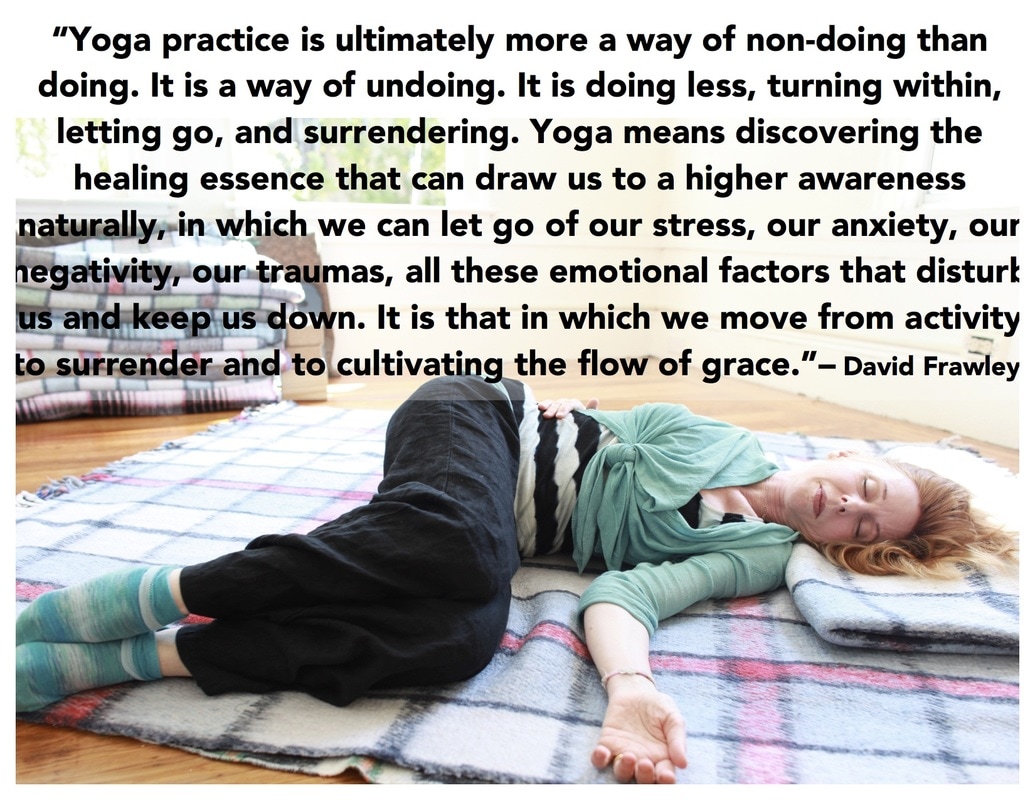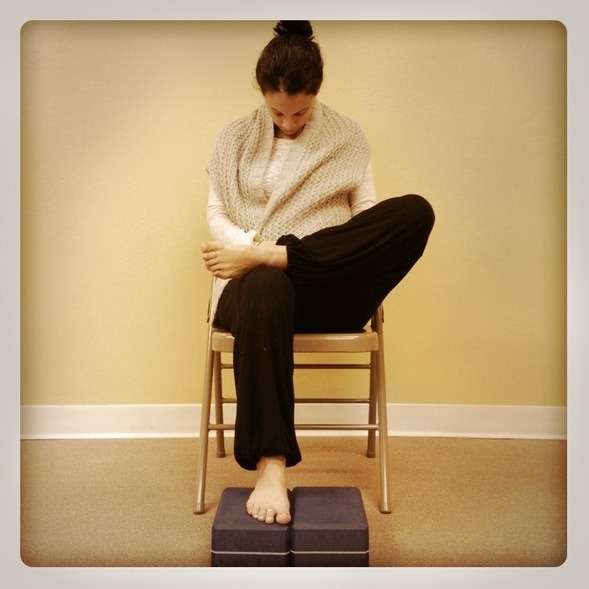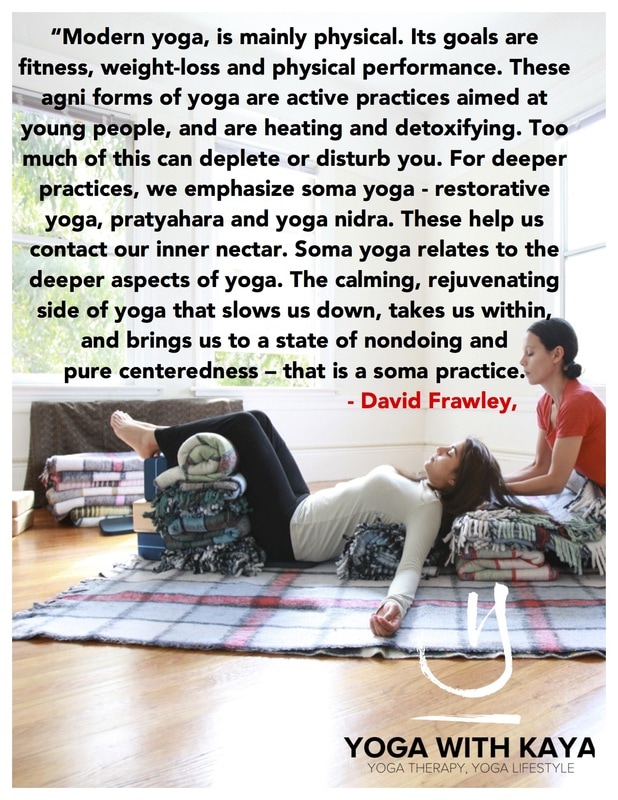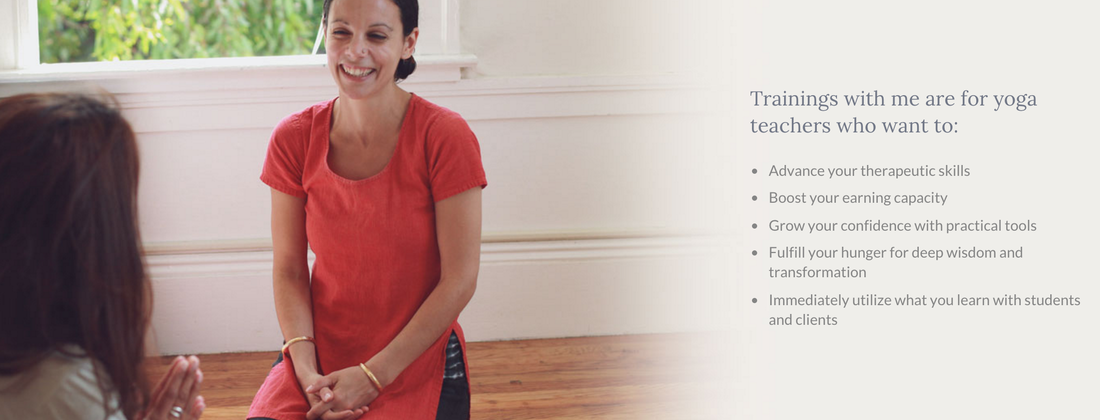|
Over the years, I have had new people come to a SRY class thinking that, because of the blankets, the slow pace, and the lack of extreme angles and asanas, that it is "beginner" yoga. Some students, at least when they start, believe that a restorative yoga practice is to help them recover from or prepare them for what they perceive as "advanced" yoga (which usually just means something they saw in a yoga magazine} Let's look at this question of whether restorative forms of yoga are "remedial", or if something deeper and more transformative is going on. What truly makes an "advanced" yoga practice, according to the yoga tradition itself, and let's explore why many experienced yogis and yoga teachers have a soft spot for restorative forms of yoga. To be clear, the SRY approach is MUCH more than "restorative", but we'll use the word for now, as it is commonly understood as a catch all term for approaches that are slow, gentle, and inward oriented in nature. What (and WHO) decides whether something is "beginner" or "advanced"? In yoga, we are lucky to be able to lean into a tradition of teachers and ancient texts that actually lay out the purpose of yoga and guide us in the question! Yoga technically states that you are already that which you seek, and there is no where to go and nothing to strive for from this perspective, linear distinctions like "beginner" and "advanced" are meaningless! Still, for our purpose right now, we will look at this question "as though" such distinctions exist and even the ancient texts discuss yoga "as if" there were a goal (though once one "realizes" the Self, he or she realizes that it was always thus and there was never any thing to "reach" for in the first place! So here are some ancient teachings that reveal the purpose of yoga - Yogaś citta vṛtti nirodaḥ Tadāa draṣthu svarūpe 'vasthanām {Patanjali Yoga Sūtras} Yoga is the settling of the mind, so that you (the one with a settled mind) can abide in your true nature. Kevalaṃ rāja yoghāya haṭha vidyopadiśyate {Haṭha Yoga Pradipika} Haṭha Yoga (asana, pranayama) for the attainment of Raja Yoga (meditation, contemplation) Prayatna śaithīlyānanta samāpattibhyām {Patanjali Yoga Sūtras} To master the yoga pose, abandon all effort and meditate on the infinite. Plus, the ancient translation or definition of the word āsana (which we now simply translate as 'pose' or 'yoga pose') is very telling regarding the true purpose of yoga! Traditionally, āsana means -
In fact, classic yoga texts tell us that out of 1,008 yoga poses there are really only a handful of important ones and... guess what - they are all seated meditation poses! So... if one is more "advanced" in yoga when his or her practice moves closer toward the goal and purpose of yoga... can we say that a true yoga practice should...
This is where RESTORATIVE YOGA comes in! If you are interested in an "advanced" practice, why not choose a practice that is oriented toward this purpose from the beginning? Restorative approaches SLOW YOU DOWN and yet, MOVE YOU SWIFTLY, CLEARLY AND DIRECTLY toward the purpose of yoga. Here are some of the ways in which we do this in our classes:
In other approaches, an "advanced" practice often may have to do with greater physical challenge and a focus on the body, however, from the yogic perspective, as one becomes more advanced toward the true purpose of yoga, the body becomes less of a focus. The body must be taken care of, but not so that it looks or feels a certain way. The body must be taken care of as means of maintaining health, vitality and awareness to carry you and your mind through contemplation and meditation so that you can come to know the truth of the Self. Restorative forms of yoga are great for beginners.... but they are also amazing for experienced students who truly want the inner experience for which yoga was designed - and THAT'S why SO MANY YOGA TEACHERS LOVE RESTORATIVE YOGA!
Here are a few articles that are of special interest to experienced yogis and yoga teachers.
0 Comments
Leave a Reply. |
AuthorYoga Therapist, Ayurvedic Practitioner & Mama - these articles are to support your yoga practice with knowledge and inspiration. Categories
All
|
Kaya is the founder of SRY™ which is based in the full spectrum of the Vedic yoga tradition. She has been teaching therapeutic restorative yoga therapy since 2001. Kaya's work is healing, transformative, deeply rejuvenating and empowers her student and clients with wisdom and inner experience. Her trained in the full spectrum of the Vedic Tradition includes Yoga, Yoga Therapy, Prenatal Yoga, Ayurveda, Women's Health, Eastern Anatomy, Sanskrit, Vedic Astrology and Vedanta Philosophy. She collaborates with her husband Michael Manzella, a Vedic Astrologer, to serve yoga students and teachers who are inclined toward depth of inner experience and knowledge. MORE ON KAYA




 RSS Feed
RSS Feed